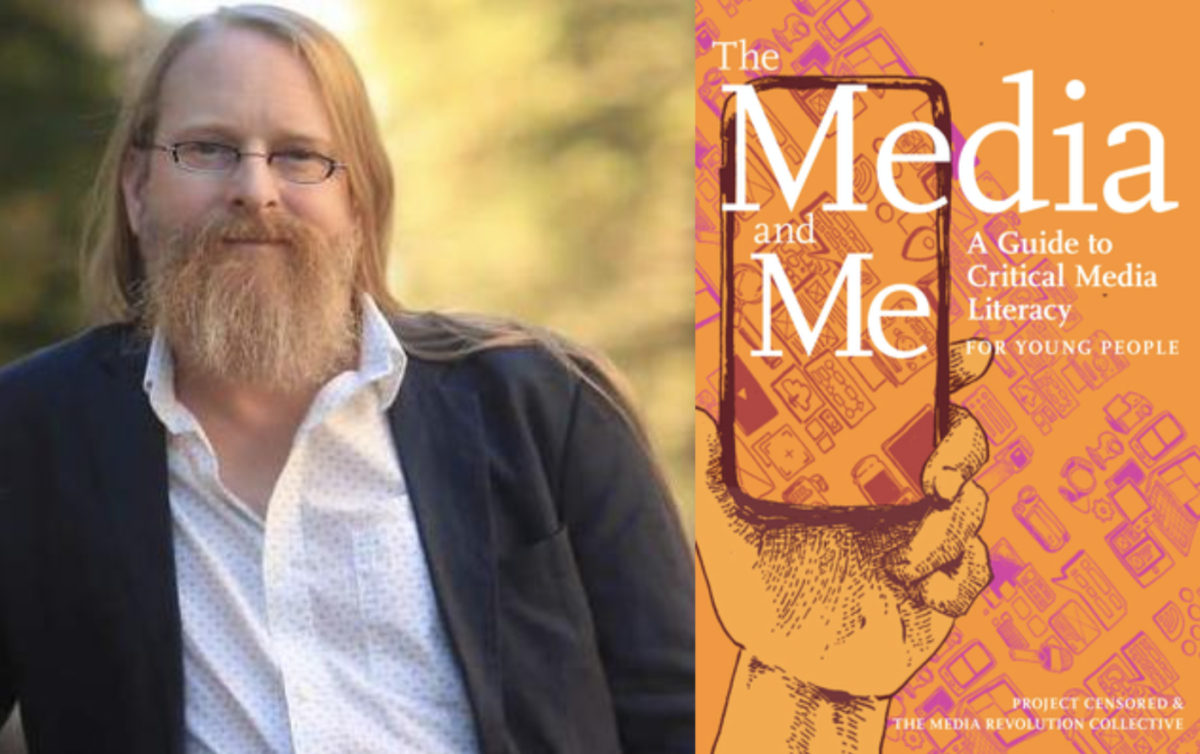In the ever-evolving landscape of media literacy and education, Diablo Valley College history and journalism professor Mickey Huff has emerged as a prominent figure through his extensive publications — most recently The Media and Me: A Guide to Critical Media Literacy for Young People, which he co-wrote with a team of authors and an illustrator under the name Project Censored and the Media Revolution Collective.
The “one-of-a-kind book,” according to Huff, addresses the lack of curriculum in media literacy for today’s young generation, and has already been adopted by the nation’s second-largest school district for staff development and training.
“An informed public is crucial to democracy in at least two basic ways,” said Huff in a recent interview with The Inquirer.
“First, without access to relevant news and opinion, people cannot fully participate in government. Second, without media literacy, people cannot evaluate for themselves the quality or significance of the news they receive.”
The co-chair of the History Department and chair of the Journalism Department, Huff has been teaching at DVC since 2000. His career took a pivotal turn in 2007 when he became the associate director of Project Censored, a media watchdog organization that analyzes media bias and censorship while promoting critical thinking and independent investigative journalism. He became the group’s director in 2010.
In 2021, the group launched a new imprint, The Censored Press, which has already published numerous books including DVC Professor Adam Bessie’s graphic novel, Going Remote, and more recently The Media and Me.
The press has donated almost a thousand copies of The Media and Me to schools, libraries and teachers across the country, said Huff, in its effort to make critical media literacy accessible to as many individuals as possible.
His latest book, Project Censored’s State of the Free Press 2024, co-edited with Andy Lee Roth, will be out next month.
Huff’s commitment to media education extends beyond the confines of traditional academic settings. Through The Censored Press, he aims to bring essential resources to a wider audience, catalyzing a shift in how we approach and consume media.
The organization highlights crucial links between a free press, media literacy and democratic self-government.
“We have to learn how to engage with people” and teach them to think critically about the world around them, said Huff. In a sense, context is everything.
“What happened today didn’t just start yesterday,” he said.
Despite its nearly 50 years of existence, Project Censored remains largely absent from corporate media coverage, a testament to its role as a constructive news critic challenging the status quo.
“The New York Times doesn’t cover what we do in large part because we are calling attention to what they don’t cover,” added Huff, who emphasized the broader implications of spreading knowledge through media literacy.
“When people are accurately informed, they can make informed decisions, and they can make decisions in the better public interest,” he said.





































































